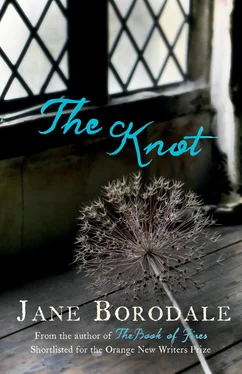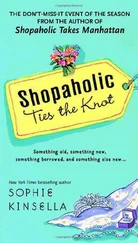He goes straight to the parlour to find Frances, to examine her closely for clues.
‘Well,’ he says. ‘That was not a complete disaster, was it.’
‘Is there no stone which that woman will leave unturned?’ she exclaims, quite amazed at Joan Young’s rudeness even though she had been warned.
‘Probably not. But she is your mother-in-law, and there is nothing to be done about it,’ Henry says.
‘Why is she like that?’
‘Because she had seen herself here, upon marriage to my father. Here at Lytes Cary. She believed that she would be first lady of this manor, did not anticipate that he would stand aside and allow me to manage the land, while he retired with his new wife to an unimposing though pleasant enough house in Sherborne. By virtue of my being the sole heir to my father’s estate as eldest son, I have ruined her plans – and she is always reminded of this on coming here.’
Chapter VIII.
Of CINQUEFOYLE, or Five finger grasse. The great yellow cinquefoil hath round tender stalks, running abroad. The roote boyled in vineger, doth mollifie and appease fretting and consuming sores.
IT IS THE TWELFTH OF MARCH, and the second week of Lent. Outside in the last of a spring frost the plants are made of glass, the sun full upon them, a few melted drops catching light and winking colours. Henry walks the edge of the estate, steam rising from the river like a pan seething. The wood is a theatre, cutout black twigs shot through with vapour and diffuse beams of light against which birds flit, softly translucent. The willow’s tawniness is flaring to orange with the year’s growth, a supple bristle of shoots. Coming back through the garden Henry watches honey bees among the snowdrops, their legs fat with yellow catkin pollen. He remembers to avoid the upper garden door, so that he does not have to speak to Widow Hodges.
Today Henry takes delivery of seeds.
Looking through them when the man has gone, he has to admit that he’s probably bought too much. There are others on order, too, but the seedsman doesn’t pass through very often and Henry was keen not to overlook a chance to buy many sorts. The man had parsley and radish which he said had come from nearby, and endive, cucumber, anise, lettuce, purslane and pompion from further afield, mostly London. Henry also took pear kernels brought from Worcestershire, and he was tempted into buying fourteen liquorice plants, even though he suspects they will not do well on this kind of soil.
It is like a banquet, a seed banquet at his desk as he sits there opening the little packets one by one and relishing their differences: pale seeds of angelica like discarded shells of dull, brown beetles – flat and ribbed as if each one had been squashed in the overcrowded seedhead. He puts one into his mouth for that explosion of resinous savour, harsh at first then with a distinctive soapy undertow. Astonishing, he thinks, going on chewing, his tongue tingling and numb, how such insignificant, woody flecks can unleash such potency. He has seeds of ammi, too. Horribly dry and bitter. Smallage lives up to its name; the seeds are minute, scarcely bigger than grains of sand or mites. Alexander seed is black and large, like fat rat’s droppings. Gromwell is of a cold dense grey like that of tin-glaze china, quite startlingly like the eyes of cooked fish – with a high shine on each, and a faint patch of yellow blush. Not perfectly round, these seeds are mobile, free-flowing on his hand.
He also has dill, vervain, motherwort, thlaspi of Candy, sanicle, dittany, thyme, aristolochia, pennyroyal, calamint, centuary, alecost, herb of Grace, and wafer-thin moons of lunary; some call it Honesty but what is truth or honesty or lies to a plant? Such riches at his fingertips!
Of course for years he has bought in seeds for the vegetable yard, but this year his enthusiasm bubbles over even for them, as well as the seeds for the Knot, as though he is seeing them anew. He already has plenty of onion seed bought locally in March – maybe three pounds in weight. He digs his hand in and lets the seeds run through them in his delight as he opens each little sack and examines the contents, sniffs them, cracks a few open with his teeth. There are various peas, and borlotti beans in their stiffly undulating parchment pods.
He pours a mixture of some of the peas and beans into a pot to gloat over at his desk. They are soft red and brown and green, silkily dry, wrinkled. They are the colour of dried blood, tallow, bone, fresh larder mould, lichen. They are as hard as shingle, as light as buttons. And they are all – he feels quite overwhelmed with the sheer mass of them – waiting. He puts his forefinger to them and stirs them about. He rattles a handful from palm to palm. They are extraordinary – how has he never heeded it so well? And the promise they contain. These things seem dead, and yet … A few drops of water, the enclosing dark earth with its minerals, the warmth of sunlight; and each of these desiccated, mummified little bits of toughness will hydrate, fatten and burst into vivid miraculous sweet shoots, climbing, sinewing towards the light.
Tobias Mote looks at them doubtfully, when Henry takes a fair selection out to show him.
‘That’s a fearful lot to be grown from seed,’ he says, scratching through his rat-coloured, curly hair. ‘We’d be better off buying in little plants already set from Mistress Shaw in Wells. Only so much time on a man’s hands. Can’t produce a nursery out of thin air in a year’s stretch.’ He points with a blunt, grimy forefinger at the dug turf around them. ‘Not with all this going on.’
Henry’s good mood is unshakeable. ‘But they’ll last, even if we can’t get round to sowing everything this season.’
‘If they don’t get mildewed, or eaten by mice, or stolen; or so long as they don’t sprout untowardly.’ Tobias Mote chuckles with more glee than Henry wants to hear. ‘There’s a lot can go wrong with seeds stored badly.’
Henry stops listening to him.
For a second he thinks he hears something else behind the garden wall, strains his ears, his heart beating, but it is the low noise of ravens up in the woods that sounds like men talking.
‘Anyway, I’ve been thinking, we’ll be needing a bank,’ Mote is saying. ‘We can cast up one here where it should catch the sun alright.’
‘And grow a soft kind of cover over it – then I must add grass seed to the list.’ Henry is making notes on a board propped on an overturned cask.
‘And grass it.’ Mote repeats. Henry finds this is an annoying habit he has, of saying again what has already been said; not as if he is committing it to memory, more as if he is weighing up the readiness of what has been decided upon, as one might judge a fruit in the palm of the hand during the course of a tour of the orchard. It is not that Tobias Mote is rude or disrespectful, just that he seems disconcertingly his own man, that won’t be bidden.
‘So that it can be used as a seat for contemplation amongst the calm of the plants, facing the Knot itself.’ Henry goes on regardless, still pleased with the idea. ‘I imagine in June it will be popular.’
‘Folk can sit and kick their heels, when they’ve little to do.’
Henry Lyte looks sharply at Mote, but he can’t see any evidence of sarcasm. Mote’s countenance is fixed always either to the far distance of the horizon, detecting the weather, or straight down to the soil to the matters in hand. He digs very fast and straight, as though he were racing. Only for trees, it seems, does he make an exception and look out to the middle ground. Once Henry saw him watching a fox crossing Easter Field with a hen from the yard in its jaws, a ruddy streak trotting diagonally, its brush out straight and triumphant.
‘See that devil go,’ he’d muttered grudgingly to no-one in particular.
Читать дальше












